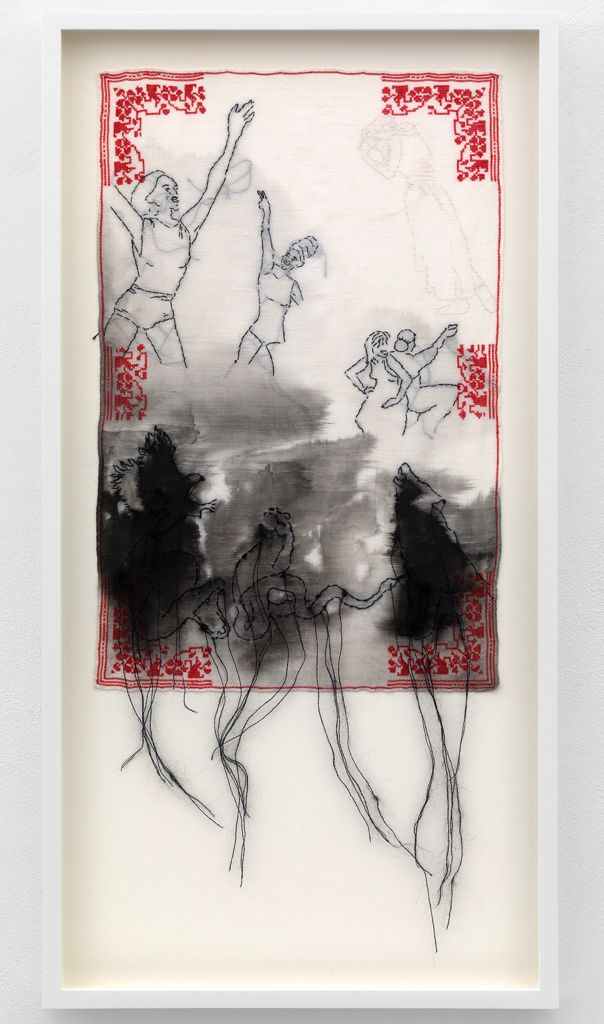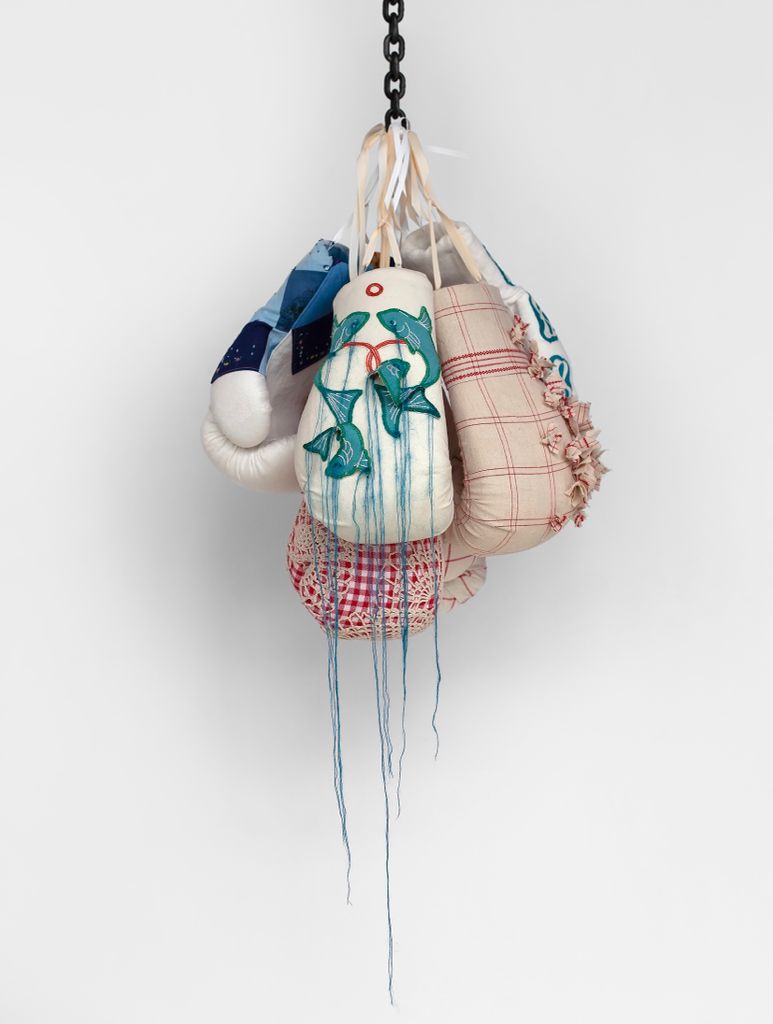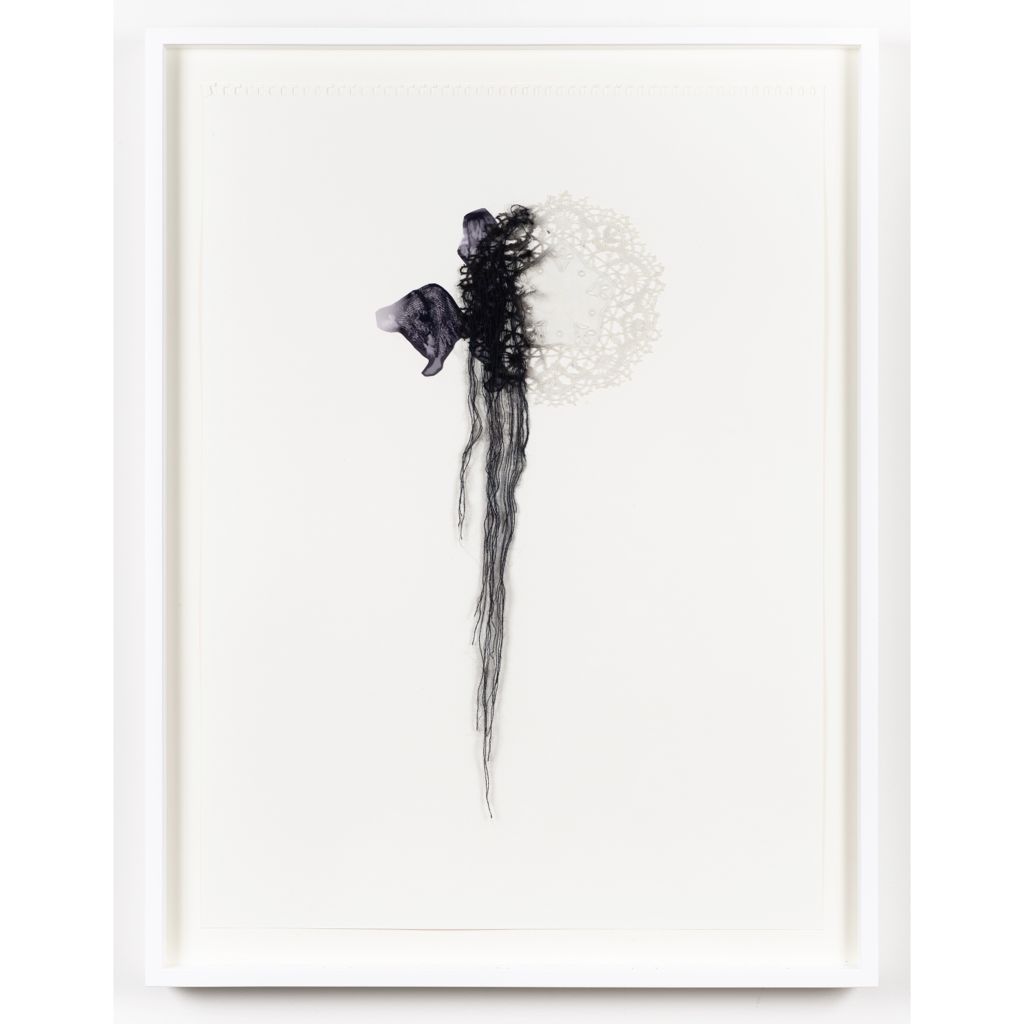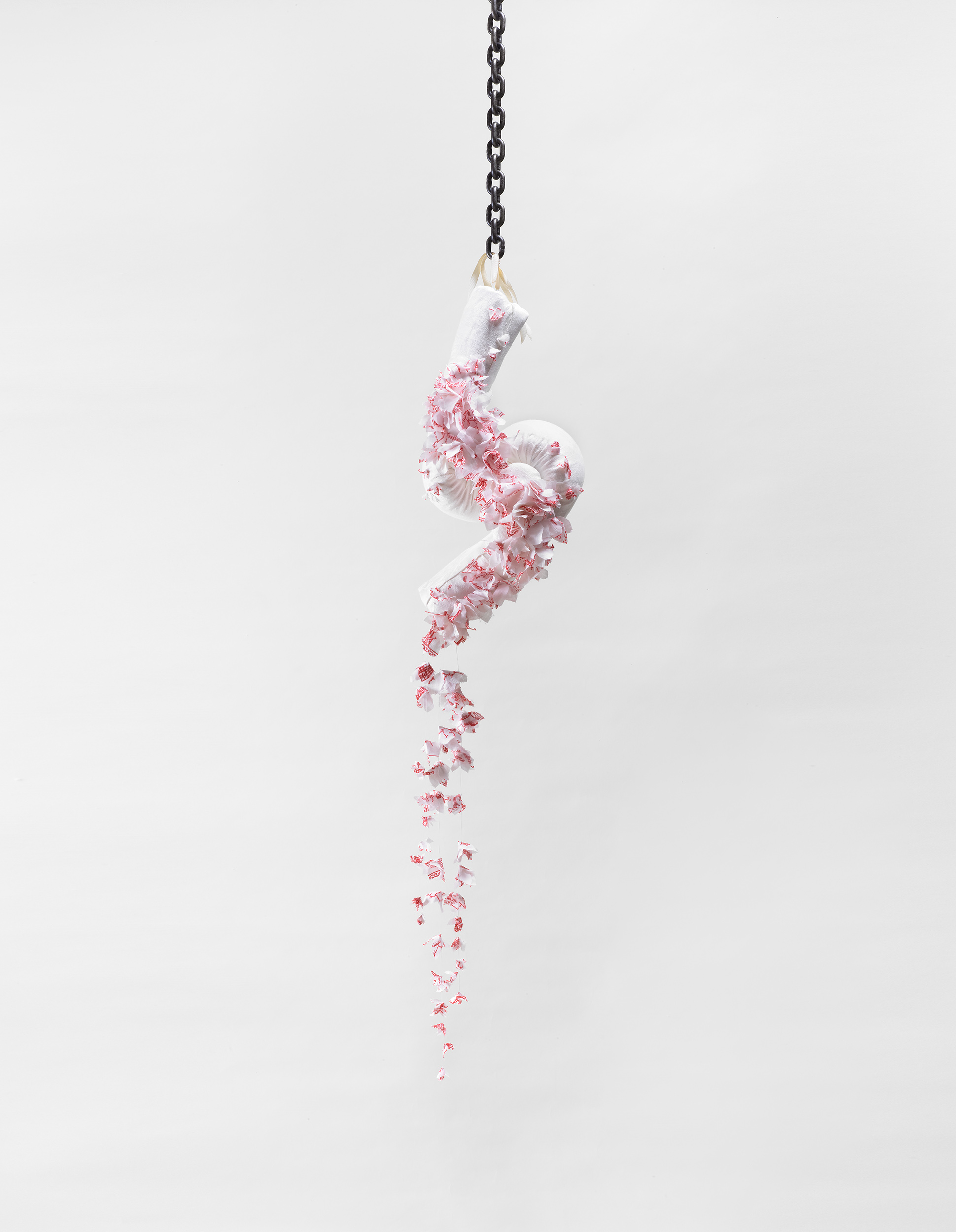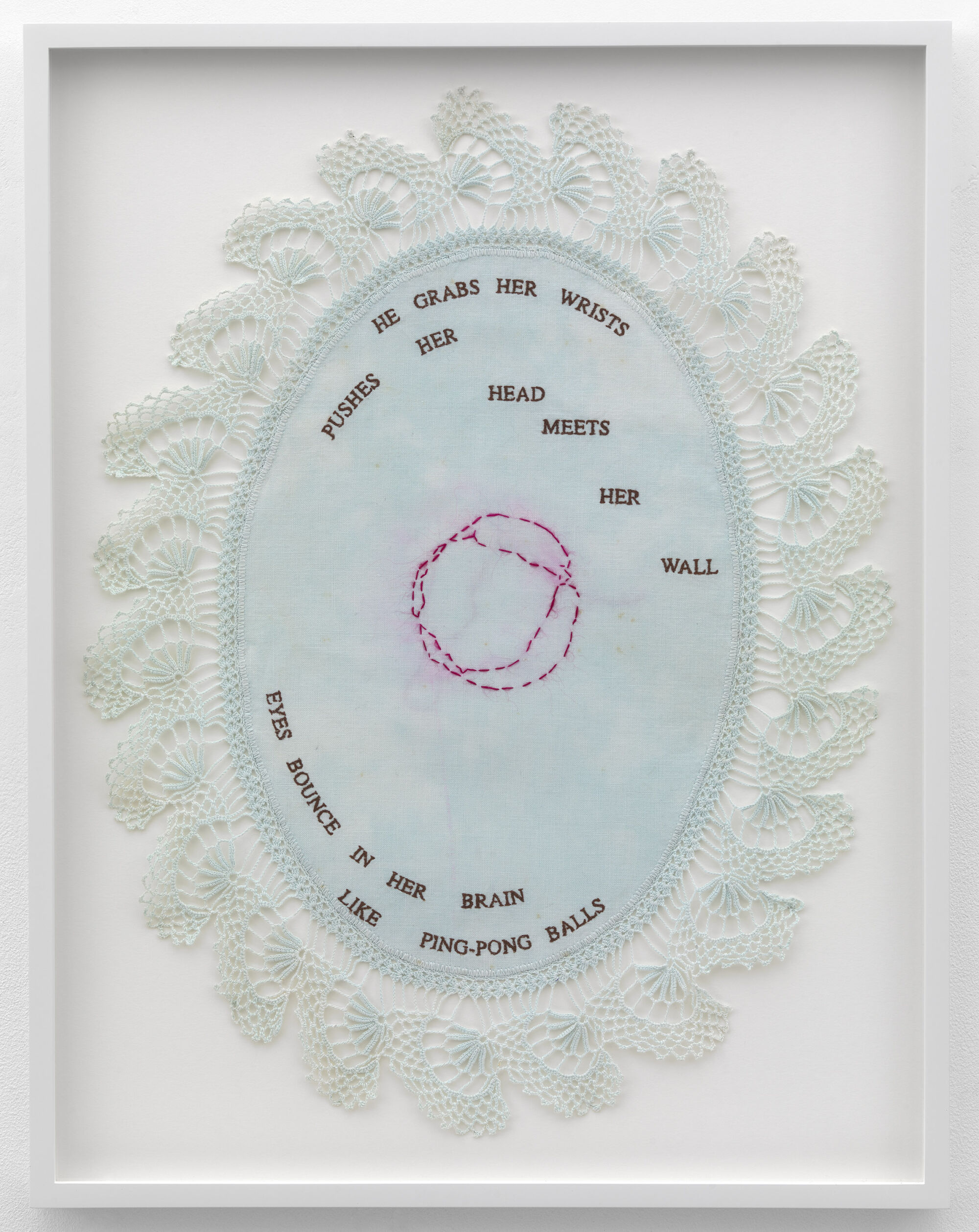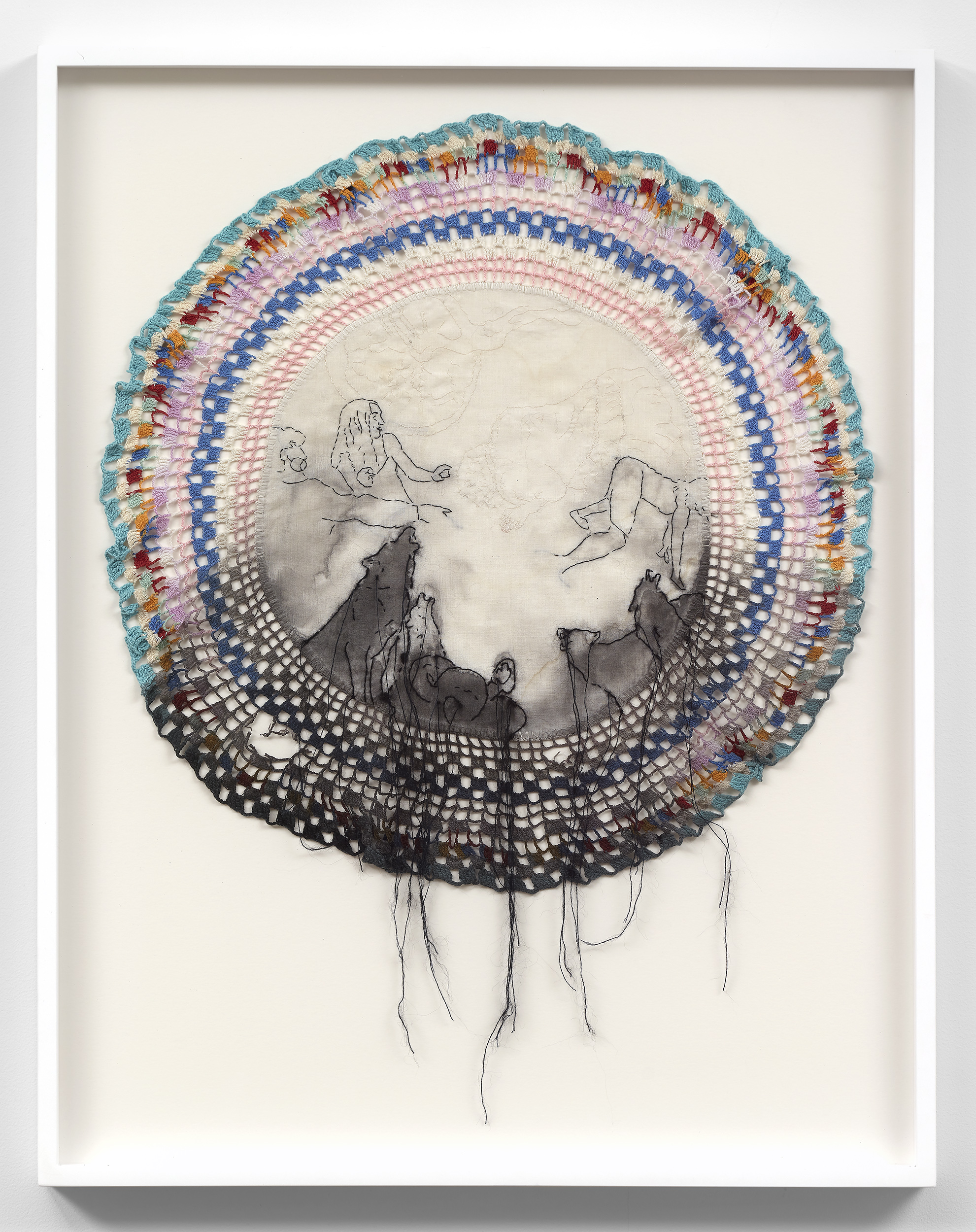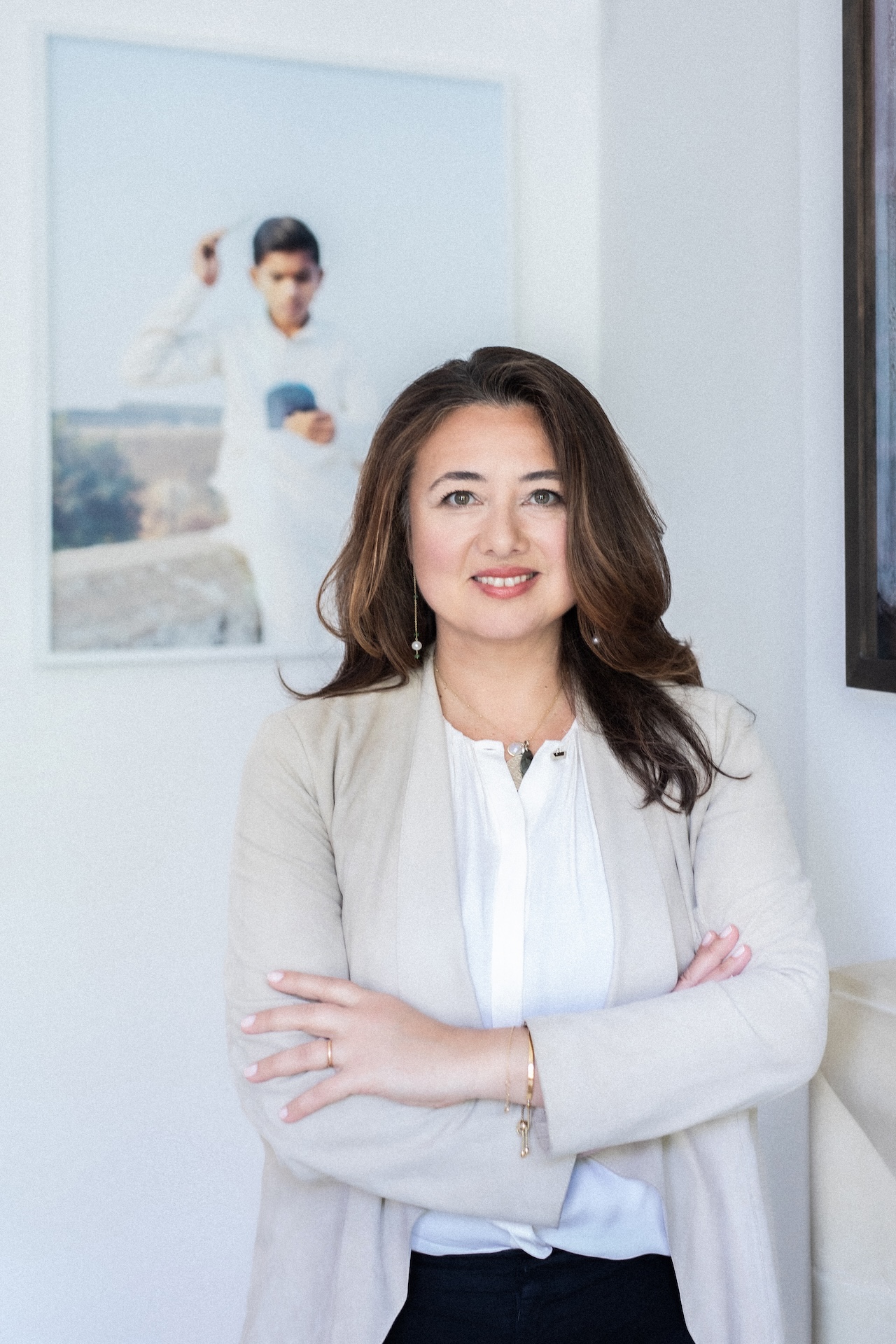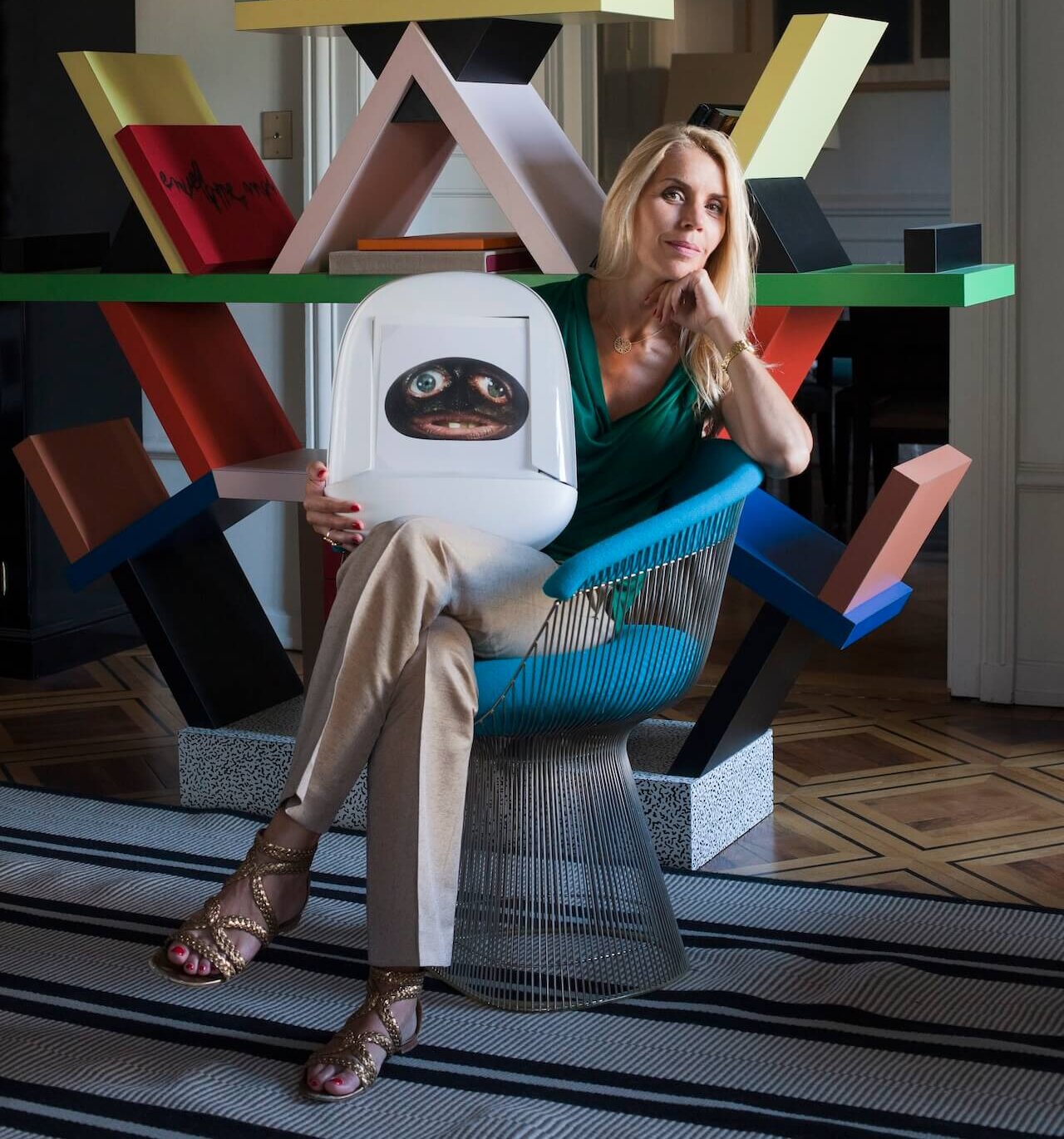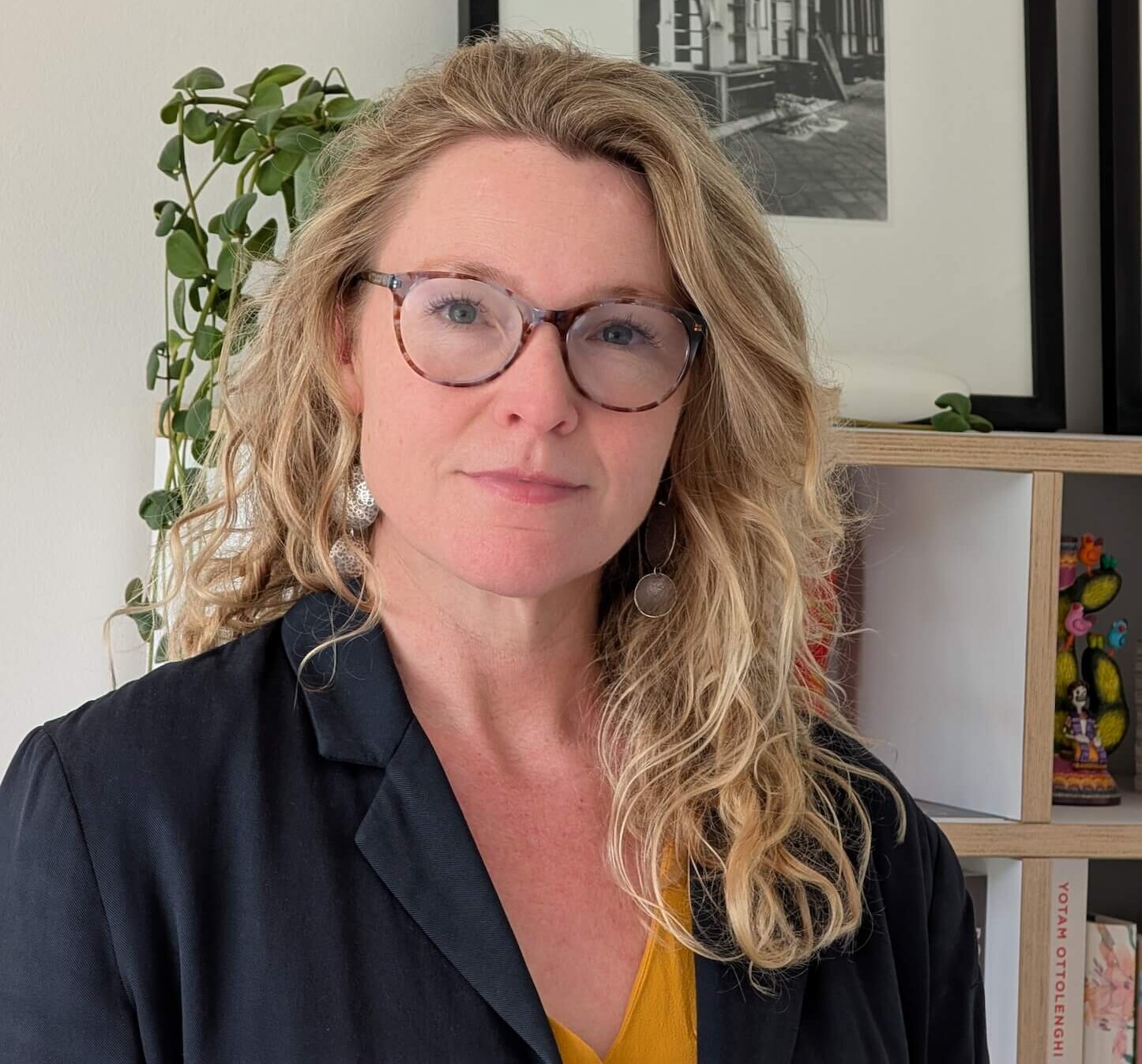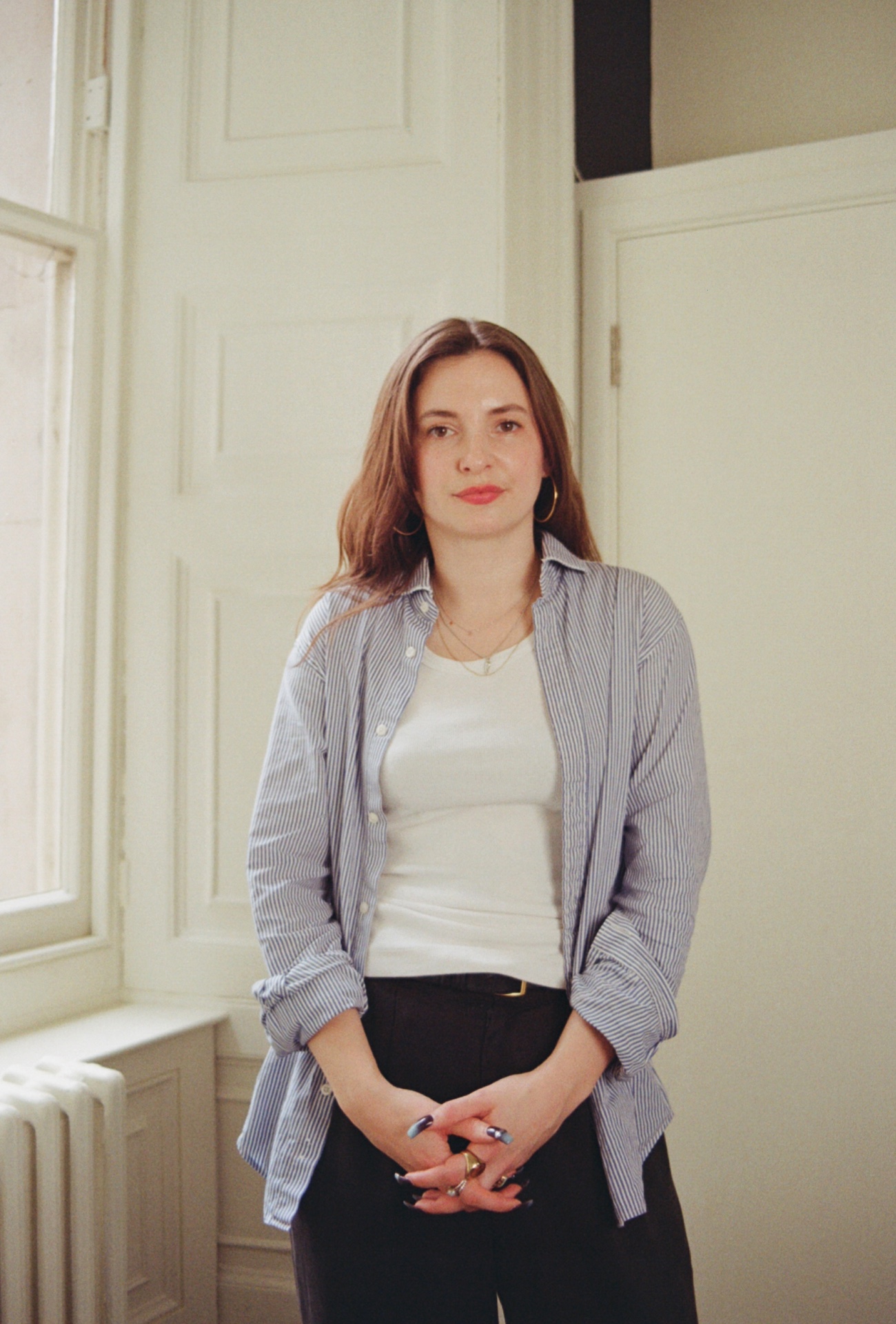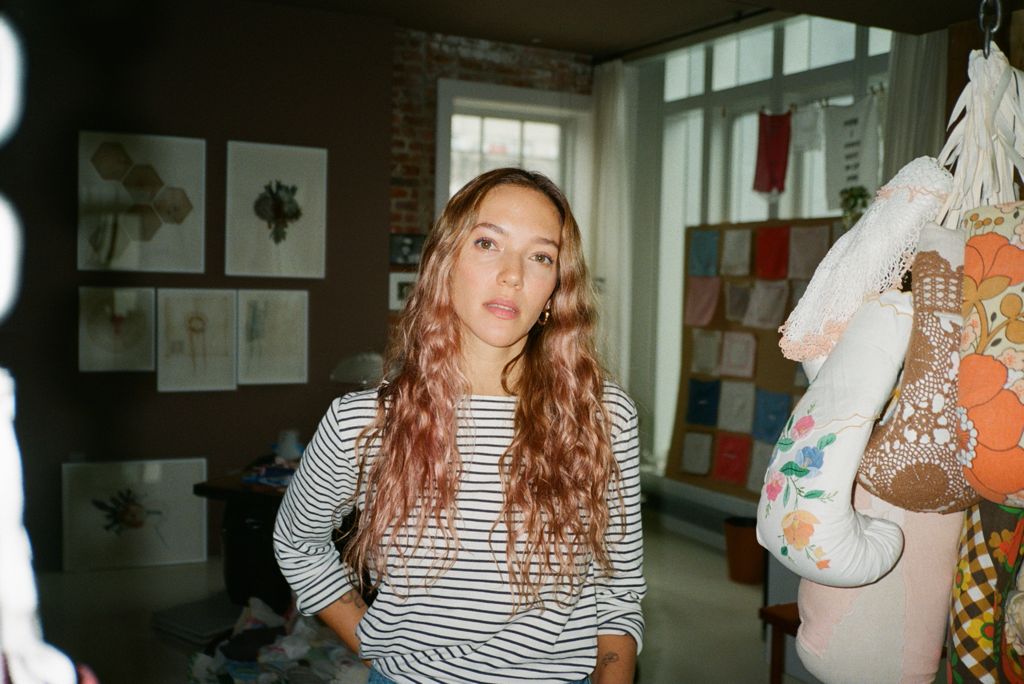

Interview London-born Artist Zoë Buckman’s Homecoming
The daughter of a former head of acting at the Royal Academy of Dramatic Arts and the niece of writer and literary agent Peter Buckman, Buckman has inherited the family’s creative genes. Since studying at The International Center of Photography, her practice has spanned sculpture, ceramics, textiles, large-scale installations and domestic objects – each choice of medium intrinsic to the feminist commentary of the work.
Following solo exhibitions at Gavlak Gallery, Papillion Art and Garis & Hahn gallery in Los Angeles and Milk Gallery, New York, the Hackney-born and Brooklyn-based artist returned to London to exhibit her recent works, with her inaugural solo show at Pippy Houldsworth Gallery, Nomi – curated by Kate Bryan – which was met with widespread acclaim.
Nomi – Buckman’s alter ego – is portrayed in various forms within the exhibition as a response to prolonged grief and trauma over a two-year period following the death of her mother. During that time, Buckman has undertaken a difficult, complex, and spiritual journey that has taken her on a real voyage to India and seen her explore psychotherapy, grief, and trauma. Nomi reclaims the serpentine motif from negative patriarchal connotations: “The limiting and confining conditions of 2020 triggered memories for me of the times I’ve been held back, literally or symbolically, by patriarchal forces,” says Buckman (November 2020). “It put me further in touch with an internal source that exists inside us all: a well of freedom and joy where our wilder instincts originate from. I see this force in the women who surround me, in the Divine Feminine, and within myself.”
THE WICK: Talk us through a typical Monday.
Zoë Buckman: Monday is usually running late dropping my daughter to school, blaming it on the F train, then racing home for therapy on Zoom. After that, it’s always a solitary studio day for me and I’ve come to love Mondays as a result.
TW: How have recent personal experiences impacted your latest body of work?
ZB: A lot of my work draws from personal experience. Losing my mother and undergoing EMDR [eye movement desensitisation and reprocessing] therapy for grief and trauma has resulted in works that examine the shadow aspects of our psyche, the wild feminine, violence in the home and the Madonna-whore binary.
TW: The recent funding cuts in the UK have sparked debate around the role of the arts in education. Do you see artists as playing a future role as educators?
ZB: I think we will have to double down on our efforts to have our work transcend gallery and museum walls and reach those who are being denied the opportunity to behold art.
TW: What is the role of the artist in the 21st century?
ZB: I believe the role of artists is to challenge the status quo, to provide spaces of representation and solidarity, or to offer a moment of transcendence.
TW: What’s a book that’s moved you and you would pass on?
ZB: I’m loving Freshwater by Akwaeke Emezi. The language is so rich and it’s very much about spirit and wilderness.
“I believe the role of artists is to challenge the status quo, to provide spaces of representation and solidarity”
